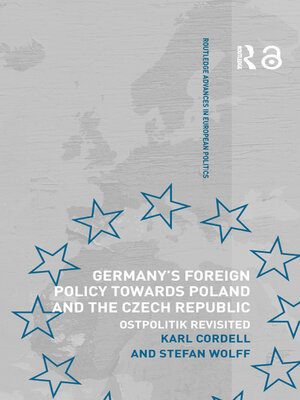Germany's Foreign Policy Towards Poland and the Czech Republic
ebook ∣ Ostpolitik Revisited · Routledge Advances in European Politics
By Karl Cordell

Sign up to save your library
With an OverDrive account, you can save your favorite libraries for at-a-glance information about availability. Find out more about OverDrive accounts.
Find this title in Libby, the library reading app by OverDrive.



Search for a digital library with this title
Title found at these libraries:
| Library Name | Distance |
|---|---|
| Loading... |
This is a new exploration of how the events of the twentieth century still cast a shadow over relations between Germany, Poland and the Czech Republic.
Using social constructivism theory, it provides a comparative assessment of Germany's post-reunification relations with the Czech Republic and Poland within the framework of the contemporary alliance structure. Identifying the key actors and factors, Cordell and Wolff examine the long-standing continuity in the norms and values that underpin German foreign policy and explore the issues of borders, territory, identities, minorities and population transfers. Paying particular attention to the process of European integration and the role of the new Germany within Europe, the authors identify how new possibilities for co-operation might finally overcome legacies of the past.
This pioneering study will be of particular interest to students of European politics and international studies.
Using social constructivism theory, it provides a comparative assessment of Germany's post-reunification relations with the Czech Republic and Poland within the framework of the contemporary alliance structure. Identifying the key actors and factors, Cordell and Wolff examine the long-standing continuity in the norms and values that underpin German foreign policy and explore the issues of borders, territory, identities, minorities and population transfers. Paying particular attention to the process of European integration and the role of the new Germany within Europe, the authors identify how new possibilities for co-operation might finally overcome legacies of the past.
This pioneering study will be of particular interest to students of European politics and international studies.







